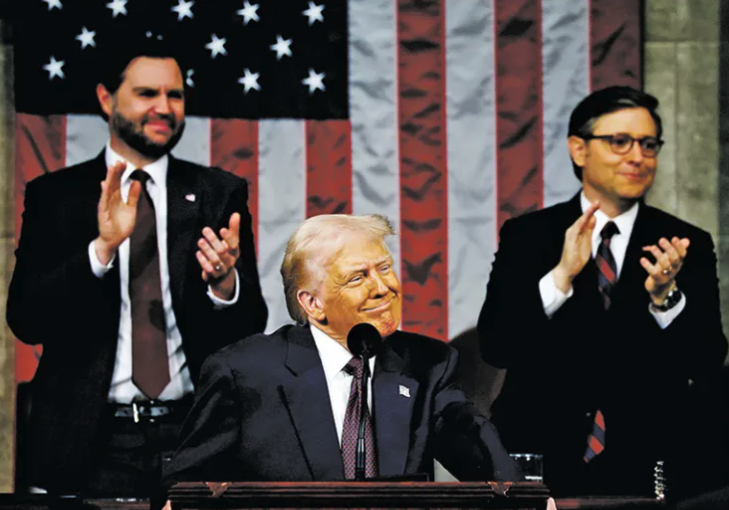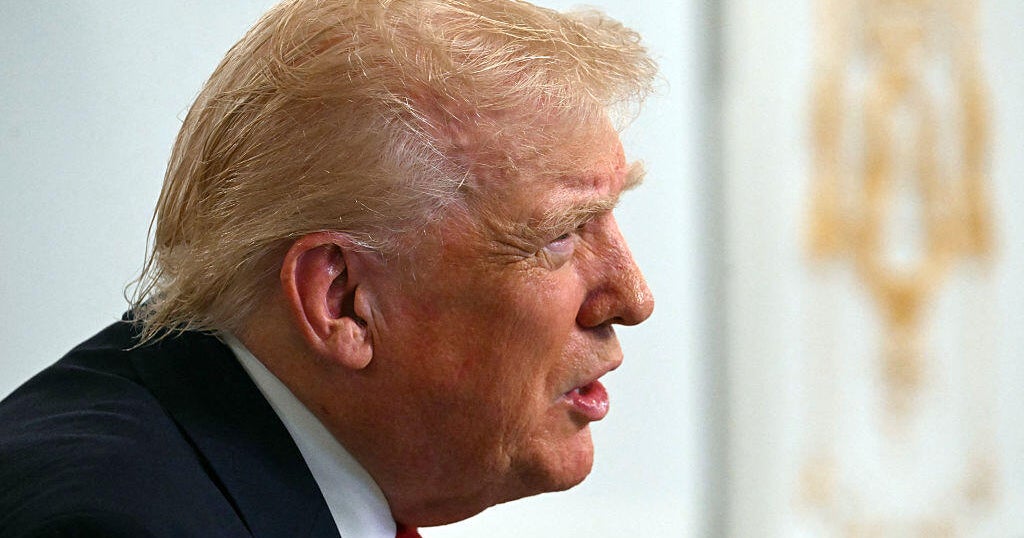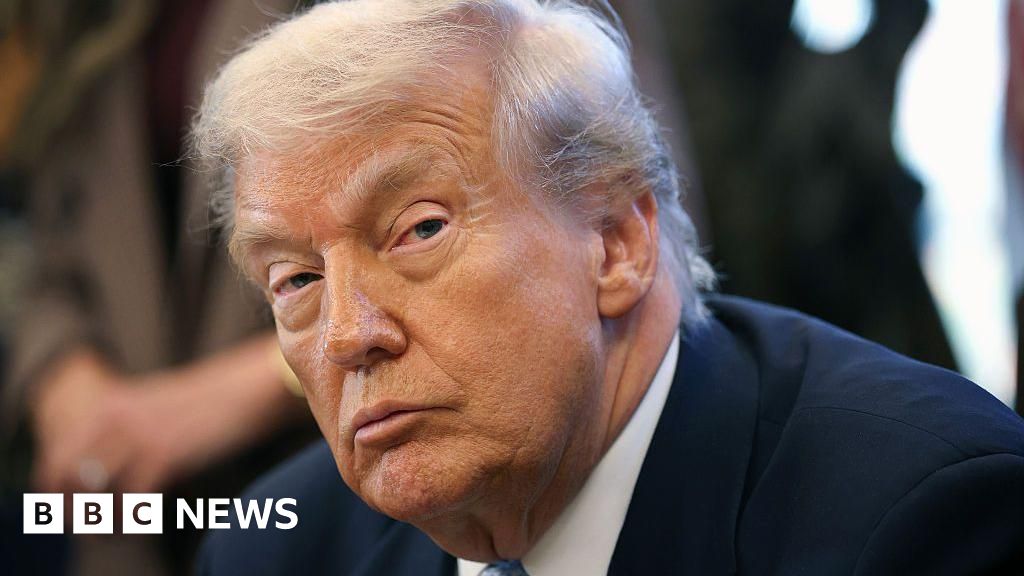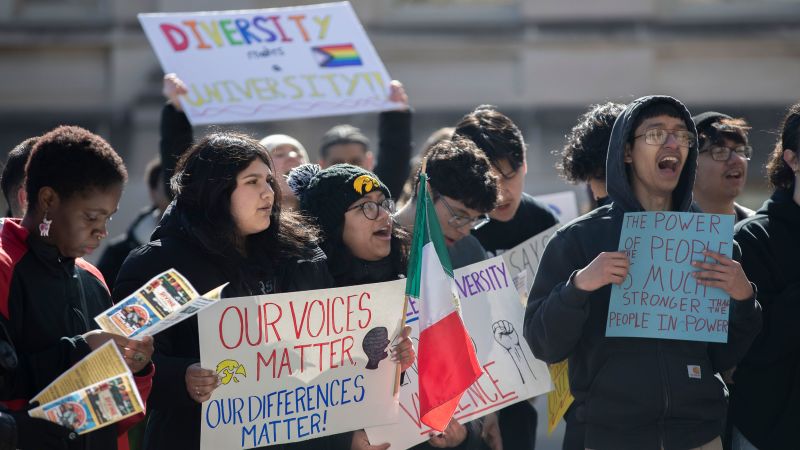Now Reading: Jacob Aki: Trump’s Address To Congress Wasn’t A Vision — It Was A Warning
-
01
Jacob Aki: Trump’s Address To Congress Wasn’t A Vision — It Was A Warning
Jacob Aki: Trump’s Address To Congress Wasn’t A Vision — It Was A Warning

President Trump’s address to Congress on Tuesday was meant to serve two clear purposes: to give the American people an honest assessment of where we stand, and to lay out a real plan for where we’re going. It was a chance to show leadership — to unify, inspire and provide a roadmap for the future.
What America got was something entirely different: a chaotic mix of personal grievances, revisionist history and a stunning obsession with his predecessor, Joe Biden.
This is not about Republican versus Democrat. It’s about leadership. And by every measure, Trump’s address was a failure of leadership.
Over the course of 90 minutes, Trump mentioned Biden by name at least 13 times — more than any modern president has ever invoked their predecessor in an address to Congress. If Trump really wanted to signal a clean break and a bold new direction, why was he so consumed with settling old scores? A confident leader lays out a vision for the future — Trump clung desperately to the past.
This wasn’t a roadmap for progress — it was a personal airing of grievances, interrupted only by bizarre detours like an off-the-cuff pitch to the people of Greenland to consider becoming part of the United States. What does Greenland have to do with inflation, border security or the real struggles facing American families? Absolutely nothing.

Americans voted for change last November — they wanted a leader who would put America first. What they got was a president more interested in putting himself and his wealthy friends first.
Nothing made that clearer than Trump’s Gold Card program — a plan to literally sell American citizenship for $5 million. While working immigrant families follow the rules and wait years for a shot at the American Dream, Trump is auctioning off citizenship like it’s a VIP club membership — a fast pass for the global elite.
It’s not just hypocritical — it exposes the rot at the core of Trump’s vision: in his America, the wealthy write their own rules, and everyone else is left to fend for themselves. That same warped logic shaped Trump’s approach to the economy.
With inflation squeezing families across the country, what solutions did Trump offer? None. Instead, he bragged about gutting environmental protections, cutting clean energy investments and slashing foreign aid — as if those things will lower grocery bills.
His one “big idea”? Tariffs.
Tariffs on Mexico. Tariffs on Canada. Tariffs on South Korea. Tariffs on China. As if taxing imports will magically fix inflation and revive manufacturing all at once.
But Americans know better. Tariffs are just taxes on working families — driving up prices on everything from food to gas to basic household goods.
This wasn’t a plan for economic recovery — it was economic isolationism wrapped in patriotic slogans. And working families will pay the price.
A Culture War
But the speech didn’t stop at economic malpractice. Trump’s culture war was front and center — attacking diversity, equity and inclusion programs, dismissing climate action as a “green new scam,” and pulling the United States out of global agreements our communities rely on to fight climate change and protect our future.
This vision — of isolation, exclusion and environmental destruction — is the exact opposite of what most Americans want. We understand that our strength comes from diversity, from partnerships and from protecting the places we call home.
What made Trump’s address even more alarming was its tone. Presidential addresses to Congress are supposed to be a blueprint for governance — this was a hit list of enemies. Grudges against Biden, attacks on Democrats, mockery of the media, and even jabs at international allies.
This is not leadership. It’s grievance politics at its worst — the rhetoric of a man who sees the presidency not as public service, but as a platform for personal revenge.
If this address is any indication of what the next four years will look like, we should prepare for government by chaos — where public service becomes self-service, and leadership serves only the wealthy and well-connected.
This is bigger than policy differences. It’s about the kind of country we want to leave for the next generation.
Do we want leadership that lifts up every family — or a government that sells citizenship to billionaires while slamming the door on working people? Do we want leaders who build a future together — or leaders who pit us against each other?
Here in Hawaiʻi, we know what leadership looks like. It’s built on aloha — compassion, responsibility and a commitment to each other. It’s about understanding that our strength comes from our diversity, not despite it. It’s about honoring our kuleana to care for the land and for each other, knowing that the success of one is tied to the success of all.
We must stand firm in the values that have carried us through generations.
Trump’s speech wasn’t just a missed opportunity — it was a warning. The values we cherish — here in Hawaiʻi and across the country — are under attack by leaders who see public service as a personal platform and citizenship as a commodity.
No matter what happens in Washington, we must stand firm in the values that have carried us through generations. We must demand leadership that serves all people — not just those who can afford to buy their way in. We must show the rest of the country what real strength looks like: strength rooted in community, not division; in compassion, not greed; in service, not self-interest.
Because if we allow the presidency to become nothing more than a personal soapbox — where citizenship is for sale and leadership is reduced to petty grievances — we won’t just lose a policy fight. We will lose the very heart of our democracy.
And for the sake of our children, our communities, and the future we all share, that is something we cannot and will not allow.




















